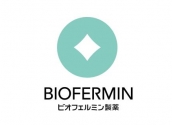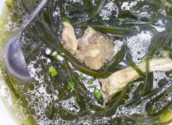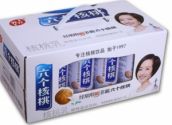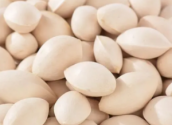【配方一】
【配方】高良姜(寒凝者倍量)、制香附(气滞者倍量)各50克,延胡索20克,白酒500毫升。
【制法】将前三味切碎,置容器中,加入白酒,密封,浸泡7日后,过滤去渣,即成。
【功效】散寒,理气,止痛。
【主治】胁痛,兼治胃脘痛。
【用法】口服:每次服10~20毫升,日服2次。
【附记】笔者祖传秘方。
【配方二】
【来源】《良方集腋》
【配方】高良姜15克,制香附15克。
【制法】上药用白酒250毫升浸泡7天,过滤即得。
【用法】口服。每次15~20毫升,每日2~3次,或痛时饮服。
【功效】行气疏肝,祛寒止痛。
【主治】气滞寒凝所致胃脘疼痛。
【附记】原方为丸剂。高良姜味辛大热,温中暖胃、散寒止痛;香附疏肝解郁、行气止痛;两药配伍,一散寒凝,一行气滞,恰到好处。临床根据病情需要,两者剂量可以增减,如气滞甚,表现为胃脘作胀明显,加大香附用量;如寒凝甚,表现为胃寒怕冷,疼痛甚者,则加大高良姜用量。
繁体译版
【配方一】
【配方】高良薑(寒凝者倍量)、制香附(氣滯者倍量)各50克,延胡索20克,白酒500毫升。
【制法】將前三味切碎,置容器中,加入白酒,密封,浸泡7日後,過濾去渣,即成。
【功效】散寒,理氣,止痛。
【主治】脅痛,兼治胃脘痛。
【用法】口服:每次服10~20毫升,日服2次。
【附記】筆者祖傳秘方。
【配方二】
【來源】《良方集腋》
【配方】高良薑15克,制香附15克。
【制法】上藥用白酒250毫升浸泡7天,過濾即得。
【用法】口服。每次15~20毫升,每日2~3次,或痛時飲服。
【功效】行氣疏肝,祛寒止痛。
【主治】氣滯寒凝所致胃脘疼痛。
【附記】原方為丸劑。高良薑味辛大熱,溫中暖胃、散寒止痛;香附疏肝解鬱、行氣止痛;兩藥配伍,一散寒凝,一行氣滯,恰到好處。臨床根據病情需要,兩者劑量可以增減,如氣滯甚,表現為胃脘作脹明顯,加大香附用量;如寒凝甚,表現為胃寒怕冷,疼痛甚者,則加大高良薑用量。
英文译版
[ Formula 1 ]
[ formula ], 50 grams of Alpinia officinarum (twice the amount of cold coagulation), 50 grams of processed Cyperus (times the amount of qi stagnation), 20 grams of yanhusuo, and 500 ml of liquor.
[ preparation method ] cut the first three flavors into pieces, put them into a container, add liquor, seal, soak for 7 days, filter and remove the residue.
[ efficacy ] can disperse cold, regulate qi and relieve pain.
[ indications ] hypochondriac pain and epigastric pain.
[ usage ] oral: take 10-20 ml each time, twice a day.
[ postscript ] the author's ancestral secret recipe. < br / > & nbsp;
[ formula 2 ]
[ source ]
formula ] 15g of Alpinia officinarum and 15g of Cyperus japonicus.
[ preparation method ] the medicine was soaked in 250 ml liquor for 7 days, and then filtered.
[ usage ] orally. Each time 15-20 ml, 2-3 times a day, or when pain.
[ efficacy ] can promote qi and soothe the liver, dispel cold and relieve pain.
[ indications ] epigastric pain caused by qi stagnation and cold coagulation. The original prescription of
[ postscript ] was pills. Alpinia officinarum is pungent and hot, warming stomach, dispersing cold and relieving pain; Rhizoma Cyperi soothes the liver, relieves depression, promotes Qi and alleviates pain; the compatibility of the two medicines can disperse cold and coagulate and qi stagnation, which is just right. According to the clinical needs of the disease, the dosage of both can be increased or decreased. If qi stagnation is very severe, the symptoms are obvious epigastric distension, and the amount of Cyperus japonicus should be increased; if the cold coagulation is very severe, the stomach cold is afraid of cold, and if the pain is severe, the dosage of Alpinia officinale should be increased.



